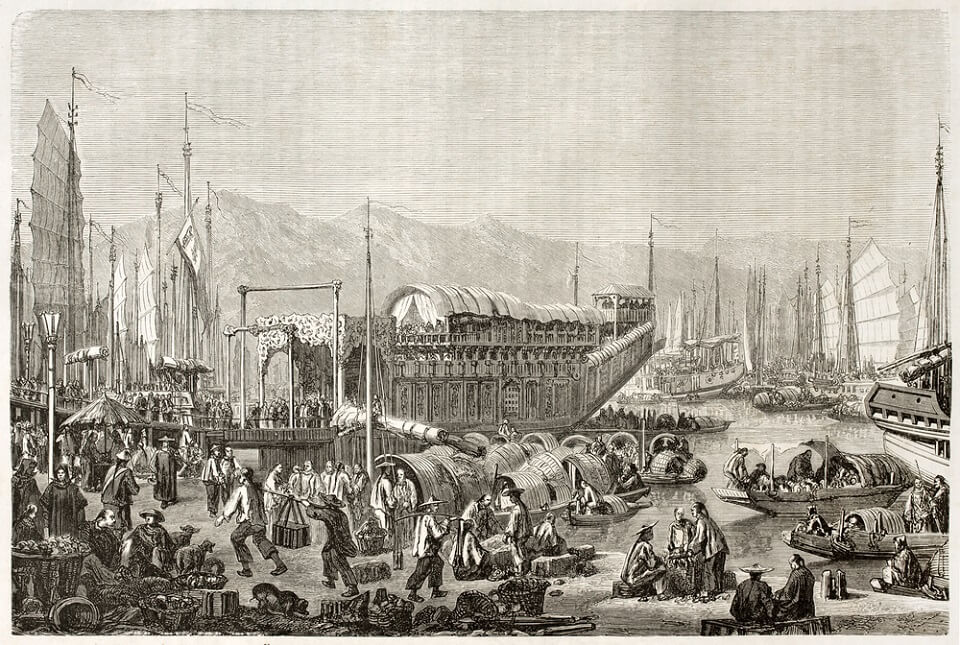Comment | Ukraine war: what history tells us about the effectiveness of sanctions

The west has responded to the invasion of Ukraine by imposing economic sanctions on Russia. There has been plenty of discussion about whether economic sanctions are an appropriate response, what they hope to achieve and what the results will be – not only for Russia but for the world.
Economic sanctions have been used as a tool of war for centuries. In 17th- and 18th-century Europe, when warfare was widespread, economic sanctions were frequently implemented. They included prohibitions on trade, the closure of ports against belligerent enemies, and bans on trade in certain commodities.
Economic exchange was affected in more indirect ways, too, by increased privateering and piracy at sea, high taxes, and conscription. The economic consequences of war were felt not only by governments, but by merchants, manufacturers, consumers and wider society, as business and daily life were thrown into chaos.
When Britain and France were at war during the Nine Years’ War (1688-97) and the War of the Spanish Succession (1702-13), both sides imposed economic sanctions on the other.
England entered the Nine Years’ War by declaring war on France on May 17, 1689, in response to Europe-wide concerns that France – and its absolutist monarch Louis XIV – was growing too strong. In its declaration of war, parliament authorised officials to “arrest all ships and vessels conveying any goods or merchandise in them belonging to the French King or to his subjects and inhabitants”.
When Scotland followed suit on August 6, the declaration of war forbade any Scottish subjects “to trade or correspond … with the said French king or any of his subjects”.
France and Britain again found themselves on opposing sides during the War of the Spanish Succession, a conflict fought over the disputed succession to Spain’s vacant throne and control over that country’s vast global territories. Similar economic sanctions were imposed. In January 1701, the Scottish parliament embargoed “the importation of all French wines, Brandy and other strong waters and vinegar made in France from any place”.
The potential for broader ramifications are clear – not only would this harm France, but economic consequences would be felt by any nation doing business in French produce. There were social consequences, too, for anyone who enjoyed drinking French wine.
This resonates with current fears over the price of oil. As prices soar as a direct result of the Ukraine conflict and global bans on Russian oil imports, it is feared that prices of crude oil could rise as high as US$300 (£228) a barrel. Just like in 1701, this economic sanction does not only harm the nation against whom it is aimed, but has consequences across the globe.
Turning a blind eye
But these early-modern sanctions met with mixed success. Individual merchants used a variety of tactics to circumvent them, including sailing in neutral ships or carrying falsified documents, as well as entering goods through different ports. In addition, governments on both sides of the channel were complicit in permitting activities that undermined economic sanctions.
In 1692, three years into the Nine Years’ War, the Scottish privy council issued six passes for ships to travel to Bordeaux on a commercial venture. Again, in May 1693, Scots were allowed to trade with and travel to France with “express leave” of the monarch or privy council of Scotland. French admirals, too, ignored their own sanctions, granting passes for British ships to trade in La Rochelle and Bordeaux throughout the Nine Years’ War.
Similar patterns emerged during the War of the Spanish Succession. The British monarch, Queen Anne, earned herself a reputation for granting passes that allowed trade with France to continue despite wartime embargoes. And in 1702 the English treasury reported that French wine was being brought over from the Spanish port of St Sebastian: “It was taken there from Bordeaux, a Spanish name given to it, and reshipped in Spanish casks”.
There was also widespread bribery of port officials. In 1703, the English treasury noted that:
This management seemed to be carried on in concert between the consuls in foreign parts and some officers in the Customs … who for private gratuities undertook for and passed such wines as were of the growth of Spain.
In 1704, in England, the House of Lords undertook an enquiry that found that 15 ships in Bordeaux, mostly from the West Country, had loaded French brandies and wines. The resulting report stated that the government discouraged informers and was inclined to hush the matter up rather than pursue the offenders.
The stringent economic sanctions imposed during these early-modern conflicts were not consistently upheld, even as bold public statements were made about the strength of enmity. The importance of international economic relationships meant that trade had to be allowed to continue, and governments needed to reconcile their political aims with economic necessity. Early-modern economies were interdependent, so it was in nobody’s interests to destroy established trading routes, whatever the political context.
We are already seeing the broader consequences of sanctions imposed on Russia, particularly in terms of the rising prices of oil and food. As the world watches Ukraine, it is worth remembering that in the past, the cost of upholding economic sanctions was often seen as too high a price to pay.![]()
Siobhan Talbott, Reader in Early Modern History, Keele University
This article is republished from The Conversation under a Creative Commons license. Read the original article.
Most read
Contact us
Andy Cain,
Media Relations Manager
+44 1782 733857
Abby Swift,
Senior Communications Officer
+44 1782 734925
Adam Blakeman,
Press Officer
+44 7775 033274
Ashleigh Williams,
Senior Internal Communications Officer
Strategic Communications and Brand news@keele.ac.uk.


